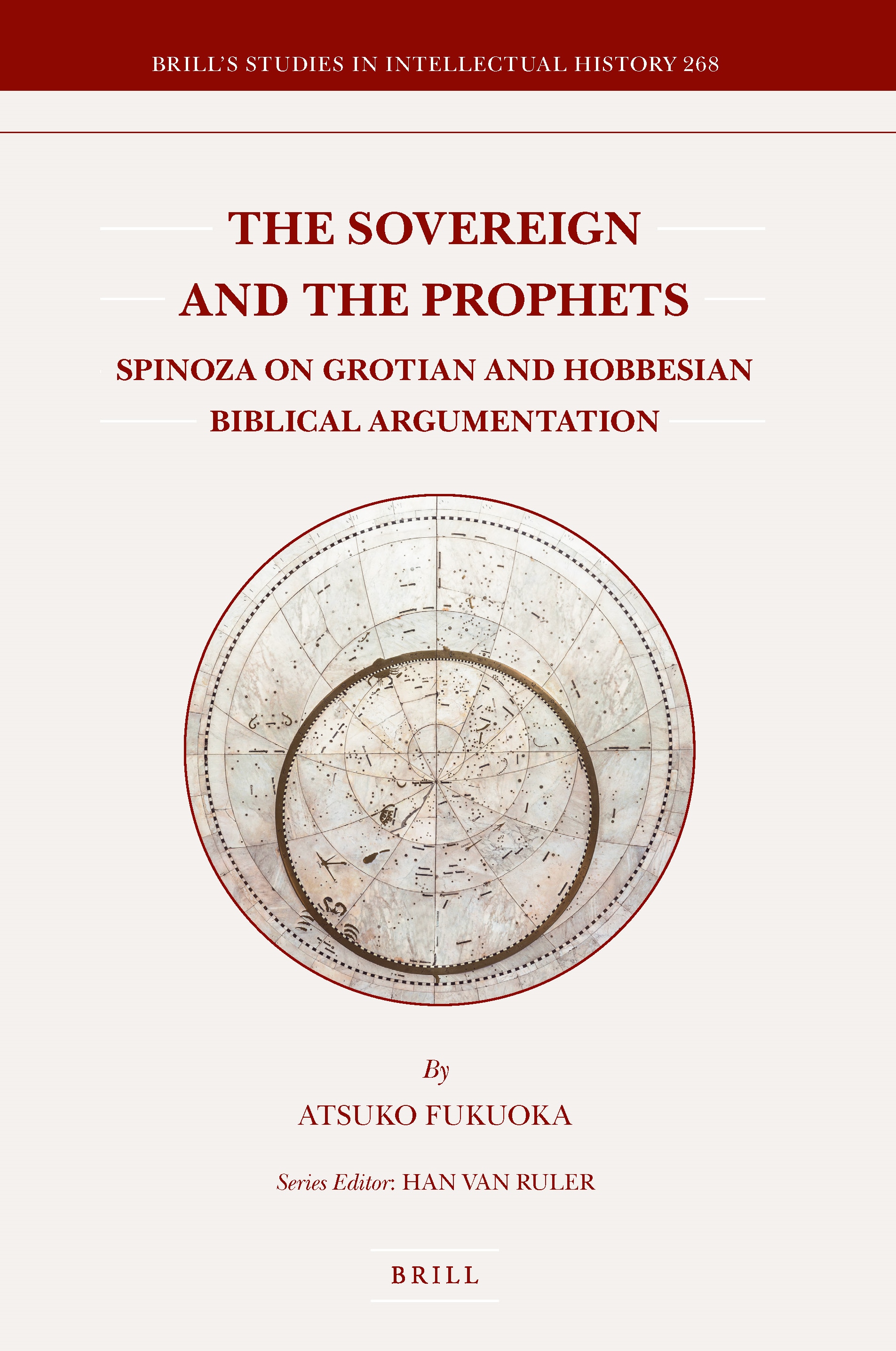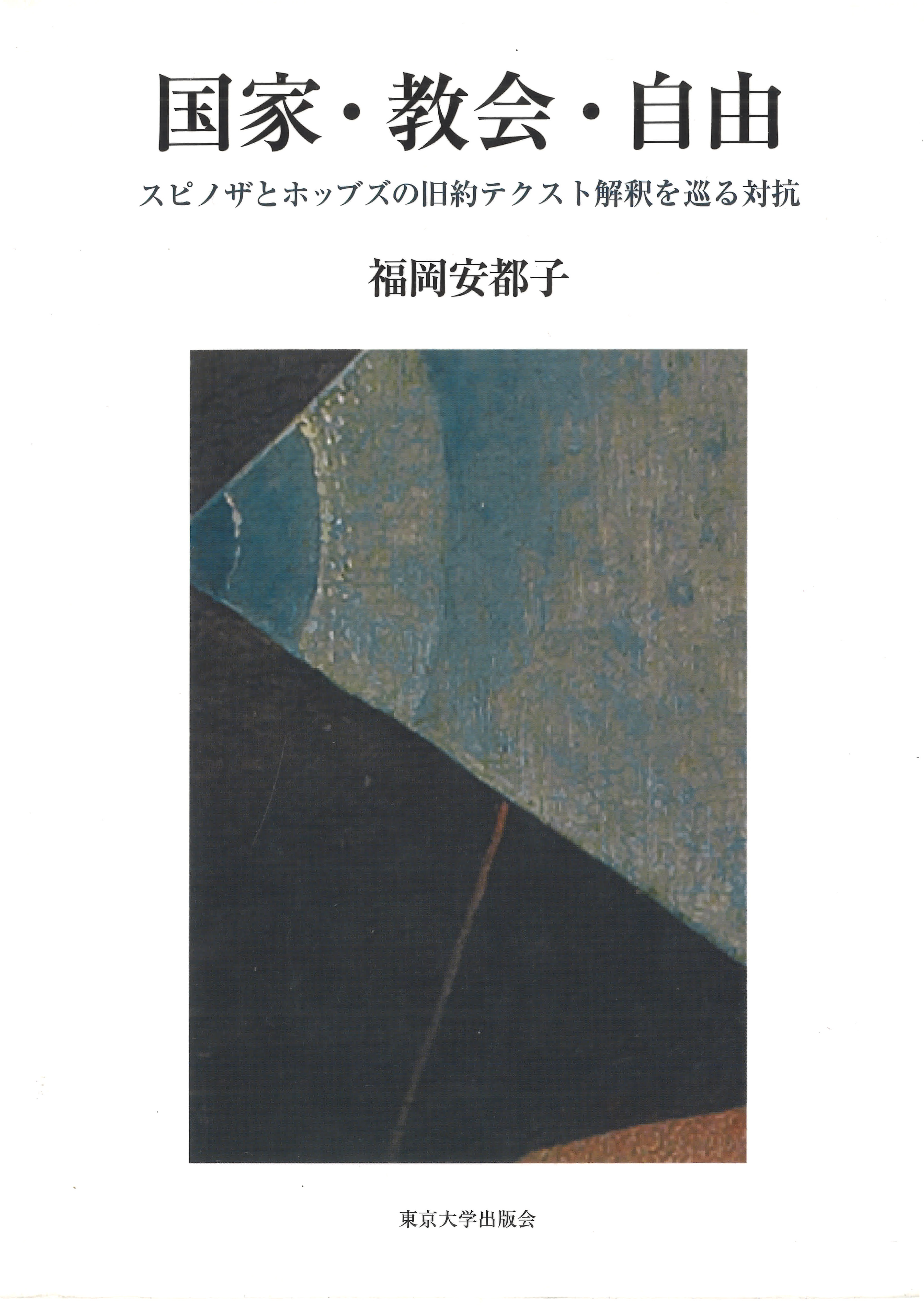
Title
Brill's Studies in Intellectual History, Volume: 268 The Sovereign and the Prophets Spinoza on Grotian and Hobbesian Biblical Argumentation
Size
444 pages, hardcover
Language
English
Released
February 22, 2018
ISBN
978-90-04-32208-0
Published by
Brill
Book Info
See Book Availability at Library
Japanese Page
The Sovereign and the Prophets: Spinoza on Grotian and Hobbesian Biblical Argumentation presents a new approach for understanding an enigmatic political pamphlet by Spinoza, the Theologico-Political Treatise (1670). The Treatise’s intensive references to the Bible have been puzzling generations of commentators: was Spinoza, who is so famous for his equation of God and nature, really serious, when in the Treatise he posed questions like ‘How did God speak to the Hebrews?’, ‘What do the words Spirit, God, and Spirit of God mean in the Bible?’ and ‘How did Moses govern the elected nation?’ The Sovereign and the Prophets neither bypasses Spinoza’s exegesis of Scripture, deeming it somehow unworthy of the philosopher, nor confines its relevancy to his struggle with his own Jewish background. Instead, the author undertakes a historical comparison with Latin and Dutch primary sources, especially those that engage with the antagonism between clerical and secular powers.
The author’s library research demonstrates that these sources, which were influential in the milieu of Spinoza and his philosophical friends, share with Spinoza’s Treatise a surprising amount of scriptural verses and topics. Their overlap includes even the frame of thought in which biblical verses and topics obtained political dimensions in the context of Post-Reformation religious struggles. An intensive investigation of these historical parallels discloses that Spinoza’s enigmatic biblical language was actually an indirect dialogue with his contemporary political theorists, importantly including Hugo Grotius (1583–1645) in De imperio summarum potestatum circa sacra, Thomas Hobbes (1588–1679) in Leviathan, and Ulrik Huber (1636–1694) in De jure civitatis libri tres.
The author also demonstrates for the first time a plagiarism in the famous State-Party pamphlet, De souverainiteyt van Holland ende West-Vriesland klaer ende naecktelijck vertoont (1664). Spinoza scholars used to attribute this pamphlet to Spinoza’s libertine-minded friend, Adriaen Koerbagh (1633–1699), and understood the biblical proofs that it offers as the evidence of a strong influence of Leviathan’s biblical argument in the Dutch controversies on church-state relationship. The Sovereign and the Prophets, however, reveals that the pamphlet is not an adaptation of Hobbes, but actually reproduces a half-century old argument by Johannes Wtenbogaert (1557–1644), who was an ally of young Grotius during the controversy between the Remonstrants and the Contra-Remonstrants, i.e. between the tolerationalist and the rigorist groups of Calvinists, in the 1610s. This discovery testifies first to the relevance of the Remonstrants’ biblico-political thought to the political situation of the decade immediately succeeding the publication of Spinoza’s Treatise; and second, to a considerable affinity in biblical argumentation between Grotius’s group and Hobbes, a historical nexus that had not fully been recognized in previous scholarship.
The historical survey offered here sheds light on a previously neglected question at the center of the dialogue between Grotius, Hobbes, Spinoza, and a number of their Dutch contemporaries. It entails in the question ‘who occupies the position directly below God to transmit His will to the people?’ The Sovereign and the Prophets traces how those theoreticians’ quests for the true mediator of God’s will on earth evolved according to the methodological assumption of each author, and how each concept of the mediator corresponded to a differentiated conceptualization of the relationship between God, the sovereign, and the individual. In another words, Spinoza’s and others’ quests to determin the mediator of divine will accompanied the crystallization of the concepts of sovereignty, as well as liberties of conscience and of free speech. Herein consists The Sovereign and the Prophets’ genuine contribution to the History of Public Law: sovereignty and freedom of mind—the fundamental ideas of modern state theory—arguably emerged through a battle of political exegesis of the Bible. The current book substantiates this argument, however paradoxical it might sound in respect of the prevailing view of ‘secularization’, through its subtle analysis of the related sources that represent the afterglow of Humanism and the surging tide of the Scientific Revolution.
(Written by Atsuko FUKUOKA, Associate Professor, Graduate School of Arts and Sciences / 2020)
Table of Contents
List of Illustrations
Notes on References and Abbreviations
Introduction
1 ‘God Sets Out Things by Mediation of Other Men’: The Question of Mediation in the Remonstrant Controversy
1 Introduction: Immediate Proximity to God as a Key Criterion
2 Antonius Walaeus: Pastors as Onder-Rechters and Their Judgment
3 A Critical Evaluation of Walaeus’s Idea of ‘Judgment’ by G. J. Vossius
4 An Elaboration of ‘Judgment’ by Hugo Grotius
2 Hobbes’s Twist on Mediation: The Sovereign Prophet
1 Introduction: Hobbes’s Biblical Interpretation and the Dutch
2 Part III of Leviathan: Its Purpose
3 Hobbesian Sacred History
4 The Epistemological Critique of Revelation
5 The Sovereign: Supreme Pastor and Sovereign Prophet
3 The Bible as Shared Political Paradigm
1 Introduction: Into the ‘Web’ of Interpretations
2 Tremellius, Junius, and Walaeus: The Distinction between Priests and Judges
3 Grotius: The Great Sanhedrin
4 Hobbes: High Priest as Sovereign
5 Van Velthuysen and Du Bois: A Cartesian Twist
6 The Brothers De la Court: The Great (Republican) Sanhedrin
7 Van Berckel: Repulicizing Leviathan
8 Spinoza: A Secret Poison
9 The Tractatus theologico-politicus and Leviathan
4 Spinoza on Jus circa sacra
1 Introduction: Echoes of Contemporary Controversies
2 The ‘Framework of Mediation’ Meets Social Contract Theory
3 Two Radicals: Hobbes and Spinoza
4 Charms and Traps of the Criterion of God’s Direct Speech
5 Spinoza on Libertas philosophandi
1 Introduction: The Nexus between Libertas philosophandi and Jus circa sacra
2 Prophets and Libertas philosophandi
3 Prophets and Jus circa sacra
6 Spinoza and Hobbes on the Authority of the Bible
1 Introduction: Helpful and Unhelpful Leviathan
2 Hobbes: ‘Submission of Intellect’ Replaced with ‘Obedience’
3 Spinoza: Biblical Command of Obedience and Human Intellect
4 Reading Spinoza in Light of Hobbes
7 The Making of Hobbes’s and Spinoza’s Polarity (1): Media of Revelation
1 Introduction: A Bold Step Grotius Did Not Dare to Make
2 ‘How God Hath Spoken’ in Leviathan
3 Mediae revelationis in the Tractatus theologico-politicus
8 The Making of Hobbes’s and Spinoza’s Polarity (2): The Spirit of God
1 Introduction: Similar Goal, Different Paths
2 Hobbes and the Spirit of God
3 Spinoza and the Spirit of God
4 Conclusions from Epistemologia Sacra
9 Ulrik Huber and the Hobbesiani: The Mediator Concept within Jus Publicum Universale
1 Introduction: A Law Professor’s Mysterious Engagement with Theology
2 Huber’s Version of the ‘Framework of Mediation’
3 A Defence of the Holy Spirit against Hobbes and the Hobbesiani
Conclusion
Bibliography
Indices
Index of Biblical Citations
General Index
Related Info
Mogens Lærke, Archives de Philosophie 82 (2019), 884–885.



 Find a book
Find a book



